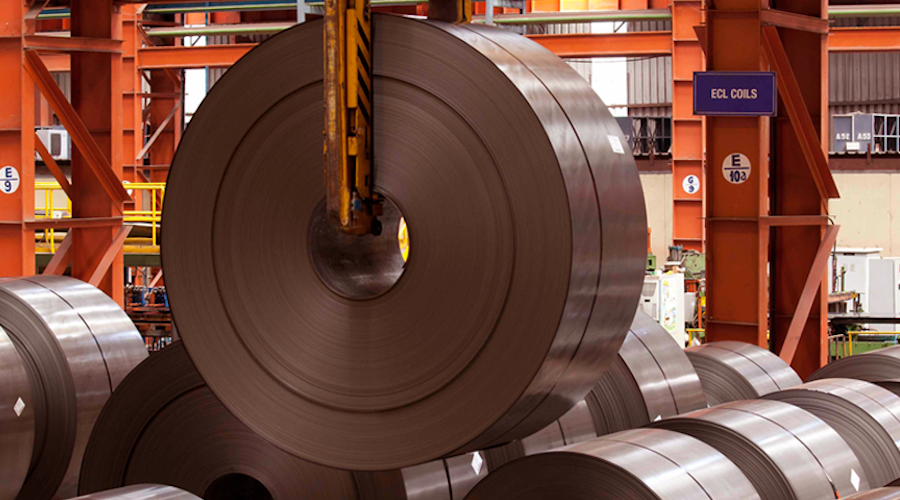Desperate for coal, India’s metal makers hunt for fuel overseas

A coal crisis in India has forced producers of sponge iron — a steelmaking feedstock — to scour the planet for supplies to keep their mills running, adding to inflationary pressures as they turn to pricier imports.
Jindal Steel & Power Ltd., which is running its sponge iron plants at 40% capacity as it doesn’t have enough of the fossil fuel, has contracted orders for 150,000 tons of thermal coal each for the months of May and June from South Africa and Mozambique, according to Managing Director V.R. Sharma. That’s the most it has ever imported in a month, he said.
“There is no coal available and we are at a hand-to-mouth situation now for inventories,” Sharma said in an interview. “We have to keep on importing coal till the time domestic coal is not available.”
India’s battling an energy crisis that is threatening to cut production in the world’s biggest sponge iron industry. Industries are running out of the fossil fuel as state-run behemoth Coal India Ltd. diverts most of its output to power plants to keep the lights on amid worsening blackouts. The situation has been made worse as global coal prices have surged on tight supply, adding to the persistent inflation pressures in the South Asian country.
In the central state of Chhattisgarh, a hub for iron ore and steel-making, sponge iron makers are running at about 60% of usual levels, the Chhattisgarh Sponge Iron Manufacturers Association said last month.
India’s sponge iron industry may ship in as much as 35 million tons of coal this financial year, 30% more than a year earlier, according to the Sponge Iron Manufacturers Association. Sponge iron is a steel-making raw material produced after heating iron ore at high temperatures using carbon in the form coal or gas.
South African and Australian traders have been flooding the industry group with queries on the quality and prices of coal that mills need, as “they know that India will have to import a lot of coal because of the energy crisis,” according to Deependra Kashiva, executive director at the sponge iron group.
Long-drawn crisis
“The coal situation is very bad in India,” as inventories are drying up and the availability of railway carriages to transport the material gets tougher, Kashiva said in an interview. Mills are ready to pay a higher premium for coal in e-auctions as “they are desperate to run their plants,” he said, adding that companies don’t want to miss out on the booming export demand for steel.
India’s steel exports jumped 25% to 13.5 million tons in the financial year ended March, according to government data.
“The government or Coal India should try to cap coal prices” to rein in energy costs, Sharma said. The country should also speed up environmental clearances and set a production deadline for miners that have won leases in auctions to bring more output quickly, he said.
“Because this is not a one-day situation. This will remain forever. This will remain in December also and next March also and next June also,” Sharma said. “The faster the mines start production, the better it is for the country.”
Shares of Jindal Steel ended 1.4% lower on Monday, outpacing losses in the benchmark S&P BSE Sensex.
(By Swansy Afonso)
{{ commodity.name }}
{{ post.title }}
{{ post.date }}




Comments